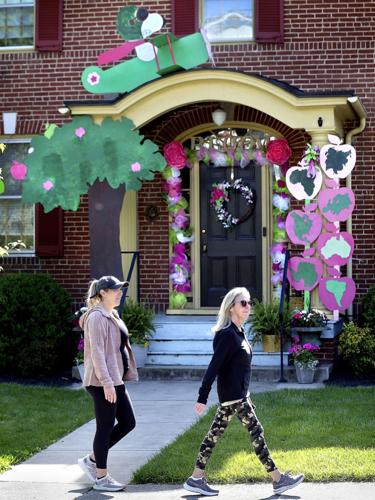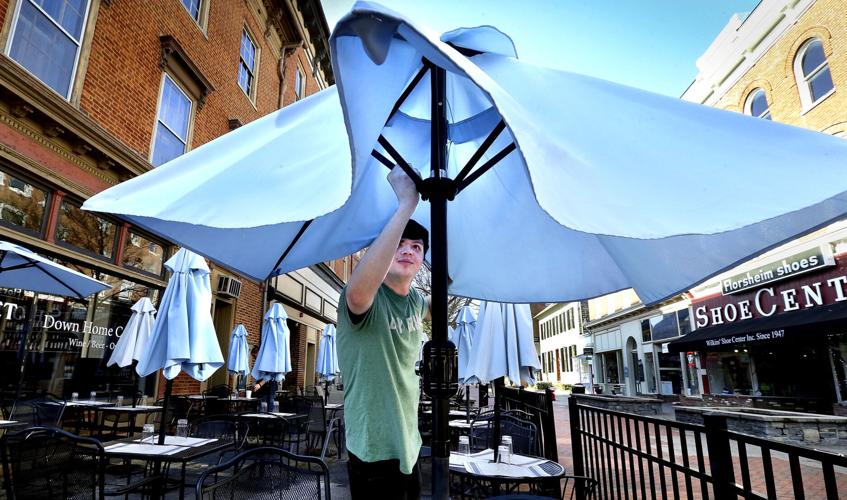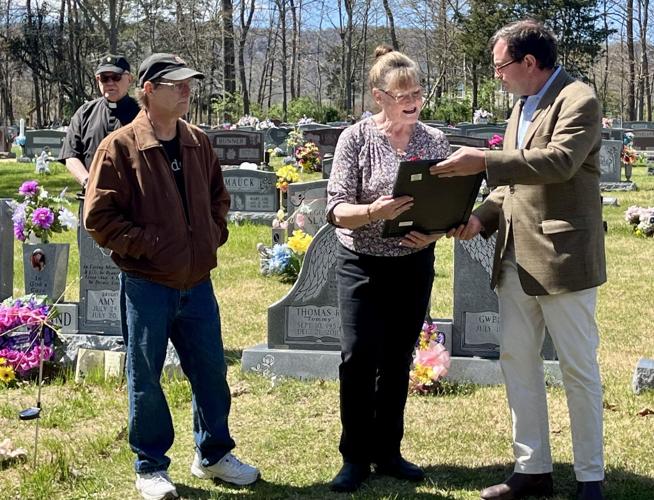WINCHESTER — Virginia voters will see two proposed amendments to the state constitution on the Nov. 3 ballot.
Question 1, the Redistricting Commission Amendment, would change the way Virginia handles political redistricting. A “yes” vote supports transferring the power to draw the state’s congressional and legislative districts from the state legislature to a redistricting commission made up of state legislators and citizens.
Question 2, the Motor Vehicle Property Tax Exemption for Disabled Veterans Amendment, asks if one automobile or pickup truck owned by a U.S. military or Virginia National Guard veteran with a 100% service-connected disability should be exempt from state and local property taxes. A “yes” vote supports the exemption.
If Question 1 is approved, it would create the 16-member Virginia Redistricting Commission before the constitutionally mandated 2021 redistricting. Currently, the Virginia General Assembly draws its own political districts, which critics say gives an unfair advantage to the political party that has the majority. Democrats currently hold the majority.
The commission would consist of eight citizens and eight legislators (four from the House of Delegates and four from the state Senate), with equal representation given to the political parties having the highest and next highest number of members in their respective houses. Citizens would be chosen by a selection committee consisting of five retired judges of the circuit courts of Virginia, from lists submitted by the speaker of the House of Delegates, the leader in the House of Delegates of the political party having the next highest number of members, the president pro tempore of the Senate, and the leader in the Senate of the political party having the next highest number of members.
If the commission fails to draw district lines or the General Assembly fails to enact them, the responsibility would fall to the Virginia Supreme Court.
The bill proposing the ballot measure, SJ 18, was introduced by Sens. George Barker, D-39th, and Richard Saslaw, D-35th. It passed the Senate on a 38-2 vote and the House 54-46, with nine House Democrats joining Republicans in favor of the measure.
“Passing this will assure election districts are drawn fairly by an unbiased non-partisan body,” 33rd District Del. Dave LaRock, R-Hamilton, said in an email to The Star. “If this fails we will see districts drawn by the people whose seek to accumulate more power. Many Republicans and Democrats see the benefits of this and have supported all along. After the shift of power to a Democrat majority in the Virginia legislature, some Democrats have flipped to oppose. This proves that some like the idea of using the process to their own political advantage.”
While LaRock supports the measure, along with most Senate Democrats and some House Democrats, 10th District Del. Wendy Gooditis, D-Clarke County, does not. Although opposing gerrymandering is one of the issues that got her to run for office, Gooditis said she has believed from the start that there needs to be an independent redistricting commission with “zero” legislators, only citizens.
“That has always been my ideal,” Gooditis said. “I find that I can’t waver from that ideal. I know a lot of my Democratic fellows, or [at least] a few of my Democratic fellows in the House, most of them are in the Senate, feel this is the best we can do. I have a very hard time with that. There will be eight of me. There will be eight legislators on this commission. Legislators have a much more invested interest than any citizen. And they will do everything they can, because they are human, to get it done in the way they think it ought to be done. And I think that’s wrong. I’m saying, ‘Don’t give me that power.’”
A longstanding criticism of gerrymandering — manipulating electoral boundaries to favor one political party or class — is that it has been used to compact and dilute the representation of Black voters.
Gooditis and some members of the Virginia Legislative Black Caucus maintain the proposed commission would not do enough to eliminate racial gerrymandering.
“It certainly isn’t specific about making sure that the commission is racially and culturally diverse,” Gooditis said. “It could be all white legislators and all white citizens. It could be set up so that it’s very, very unfair.”
Despite her objections, Gooditis expects the amendment to pass.
“The problem with the amendment is, once it’s in the constitution, it’s very hard to remove from the constitution,” Gooditis said. “So if it turns out to not have worked, we are stuck with it.”
Early voting in Virginia begins this Friday. From Sept. 18 to Oct. 31, voters can vote in-person at their respective voter registrar’s office. Voters can also vote by mail. Oct. 13 is the last day to register to vote in the Nov. 3 election.
While absentee voting is not new to Virginians, after new legislation passed by the General Assembly went into effect July 1, Virginia voters no longer need an excuse to vote absentee. Any registered voter may request an absentee ballot or go vote early in person. Absentee ballots will begin being mailed out on Sept. 18, the same day early voting begins in all localities throughout the Commonwealth.









(0) comments
Welcome to the discussion.
Log In
Comments are reviewed by moderators so they may not immediately appear. We appreciate your patience.